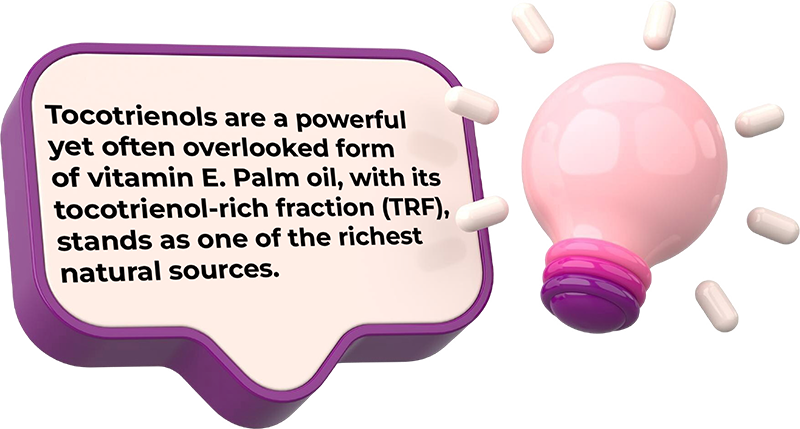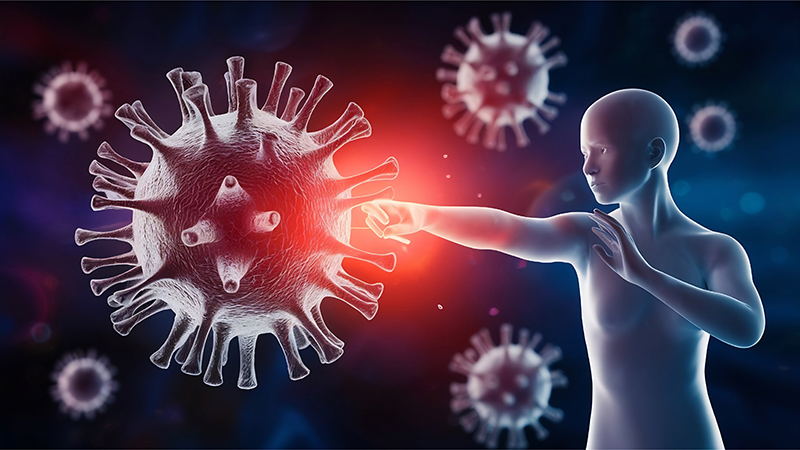Empowering Immunity: The Role of Tocotrienols and Nutrition
By Professor Ammu K Radhakrishnan

THE COVID-19 pandemic brought unprecedented challenges to global health, affecting millions of lives and overwhelming healthcare systems worldwide. Furthermore, COVID-19 exposed the vulnerabilities of populations already burdened by non-communicable diseases, many of which are linked to suboptimal nutrition and lifestyle factors. One of the most profound lessons learned was the importance of a healthy and functional immune system, where it became increasingly evident that a well-functioning immune system is essential for preventing severe infections and mitigating their long-term effects.
Low Immunity and Dietary Needs
The ability of the COVID-19 virus to cause severe disease, especially in individuals with weakened immunity, such as the elderly, those with chronic diseases, and individuals with poor nutritional status, highlighted immunity as a key determinant of disease outcomes. Nutrition and healthy lifestyle practices are key to having a healthy and functional immune system, which spurred widespread interest in understanding how nutritional interventions could bolster immunity.
The ability of the host immune system to mount effective defences against pathogens involves genetic and environmental factors as well as the availability of essential nutrients. Vitamins such as D, C, and E as well as minerals like zinc and selenium have been identified as pivotal in modulating immune responses. Deficiencies in these nutrients were associated with increased susceptibility to infections, highlighting the importance of dietary adequacy in maintaining immune health studies.

Research has demonstrated that palm tocotrienols can help boost the immune response. Two key studies, one involving human participants (Mahalingam et al., 2011) and another with animal models (Radhakrishnan et al., 2013), showed that palm tocotrienols significantly enhance cellular immunity and antibody production, particularly in response to the tetanus toxoid vaccine. This suggests their potential in improving vaccination outcomes.
Furthermore, research findings by Mahalingam et al. (2011) demonstrated that palm tocotrienols enhance the body’s production of vaccine-specific antibodies and a key signalling molecule that activates part of the immune system, helping to combat infections caused by viruses and certain bacteria.
Additionally, it lowers the amount of pro-inflammatory substances in the body, such as a marker known as IL-6, showing its potential to reduce inflammation. Increased levels of specific antibodies indicate a boost in the immune response that helps protect the body from infections over the long term.
Tocotrienols have emerged as potent immunomodulatory agents with effects that extend beyond those of tocopherols, the more well-known form of vitamin E. The immune-enhancing effects underline tocotrienols’ potential as vital nutrients for maintaining and boosting immunity. However, these benefits are maximised through good nutrition, which facilitates absorption, synergises with other micronutrients, and supports a balanced immune environment. As the world focuses on resilience against infections post-COVID-19, integrating tocotrienol-rich foods and supplements into a well-rounded diet is promising for bolstering immune health.

Tocotrienols have immune-enhancing properties, emphasising the role of maintaining and boosting immunity.
Professor Ammu K Radhakrishnan is a Professor of Immunology at the Jeffrey Cheah School of Medicine and Health Sciences, Monash University Malaysia. She obtained a First-Class Honours Bachelor of Science degree in Biochemistry and a Master of Science (MSc) degree from the University of Malaya (UM), Kuala Lumpur. Professor Ammu obtained her Doctor of Philosophy (PhD) degree in immunotherapy from the University of Cambridge, UK.
She is a Fellow of the Royal Society of Biology, the Cambridge Commonwealth Trust and the Cambridge Philosophical. Her main research areas are immuno-regulation and immunotherapy in cancer, as well as the use of natural compounds to enhance host immune responses to cancer. She has successfully supervised many research students at the doctoral, master’s, as well as undergraduate levels and has published extensively in her area of research.


